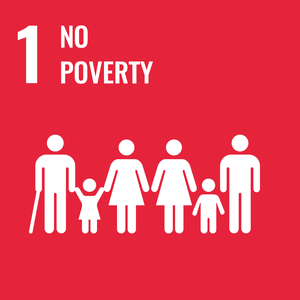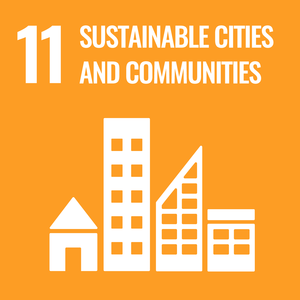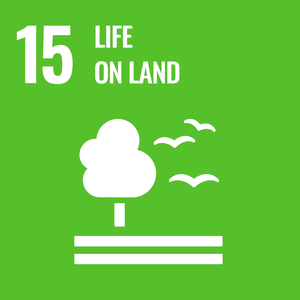About the specialisation
Disasters disrupt national economies, affecting people, communities and countries substantially today and even more tomorrow. With the Sustainable Development Goal 13, the international community has called to strengthen resilience and adaptive capacity to climate-related hazards and natural disasters in all countries. Besides natural hazards, human-made disasters such as cyber-attacks or terrorism and the perceived risk thereof have entered the daily lives of many with far-reaching social impacts.
In response to these risks, stakeholders worldwide are keen on finding optimal innovative instruments that can aid vulnerability assessments (and scenario modelling) in efforts to institute effective early warning systems, build resilience and promote adaptive governance temporally and spatially.
This specialisation deals with the key geospatial, governance and social aspects in disaster risk assessment, resilience building, crisis management and the role of risk perceptions therein. Students are exposed to various vulnerability and resilience dimensions, components, databases, assessment frameworks and analytical techniques. They learn how to select relevant indicators and construct composite indices independently. At the end of the specialisation, students discover how to cost-efficiently and effectively deal with, communicate and manage crises (e.g. through risk financing). Diverse quantitative and qualitative techniques and instruments are employed throughout the specialisation, including several geo-information platforms for visualising, analysing and interpreting spatial data (QGIS).
The specialisation is taught in collaboration with the United Nations University Institute for Environment and Human Security (UNU-EHS) in Bonn, Germany. In addition, students benefit from first-hand practical sessions with visiting disaster-risk experts and practitioners working for governments, financial institutions, private companies, civil society and research institutes nationally and internationally.
SDGs covered:
Related projects
United Nations University Climate Resilience Initiative
Testimonials from alumni
Samet Sevket Bulut
2016-2017 MPP cohort:
“During the specialisation, I had the chance to get an insight into a lot of different naturally induced disasters as well as technological disasters. We learnt how to conduct proper risk and vulnerability assessments, understand adaptive governance strategies, and how to manage situations before, during and after disasters. Additionally, I enhanced my knowledge in the field of risk communication and its relevant factors. Generally, I enjoyed the specialisation, especially the first two months where we focused predominantly on naturally induced hazards. I can definitely recommend the specialisation as it is very interesting. The most valuable experience that I took away was the process of my master’s thesis writing that was strongly related to the field of risk and vulnerability. I learnt how to conduct well-designed and adequate expert interviews which helped me to enhance my research skills.”
Puck Jeekel
2015-2016 MPP cohort:
“I chose to follow the Risk and Vulnerability track because it fit well within my background study, and it allowed me to do research in the field of climate change and natural hazards. I already knew that a big interest of mine was in this field, and the subjects covered within the track taught me the whole process of risk assessment, risk management and risk communication. I think the specialisation fits well within the challenges we are facing today and probably will increase in the future. I also thought about doing the Innovation track, yet in the end I preferred the Risk & Vulnerability track a bit more because of its more practical focus. Within Risk & Vulnerability the main skills (next to theoretical notions) that I learned were how to conduct a vulnerability assessment and how to map spatial issues with GIS (geographical information systems). The theoretical notions were also very useful. For example, my Master’s thesis was on the concept of resilience in the transport sector.
In my current work, I can share my knowledge on the different conceptualisations of resilience and I see that a lot of different organisations are also struggling with the dilemmas I found within my master thesis. I liked the specialisation for its broader scope (assessment, management and communication) and its look at current and future issues within the world. Besides, I like that we were relatively free to choose our own subjects for papers, as long as it fit within the overall aspect of risk or vulnerability. This allowed me to focus on topics I am very interested in (climate adaptation, sustainable transport), while incorporating new concepts from the different courses. For me personally, I would have liked to learnt more in-depth on some of the topics (or the use of theory in everyday practice).”
Career Perspectives
Our graduates are currently employed in a wide range of professions in the public, non-profit and private sectors. Examples include:
Private Health Policy and Systems Consultant, National Health Insurance Authority
Strategic Advisor for Academic Affairs, University of Luxembourg
Independent consultant, ILO International Labour Organisation
Senior Operation Risk Officer, National Social Security Fund
Financial Plumber/Payment Systems Specialist, The World Bank
Research Analyst, The World Bank
Partner & Consultant, FMO Dutch Entrepreneurial Development Bank
Insurance Specialist, Royal Insurance Corporation of Bhutan Limited
Non-financial Risk Control Officer, ING Switzerland
Risk & Compliance Officer, TIAS School for Business and Society
Main teaching staff
Prof. Dr. Ir. Eleonora Nillesen
Dr Valerie Graw
Dr Frederic Bouder
Dominic Sett
Dr Michael Hagenlocher
Edward Sparkes
Dr Rifka Weehuizen
Learn more about the specialisation
Our course catalogue page on the Maastricht University website
Registration / application information









